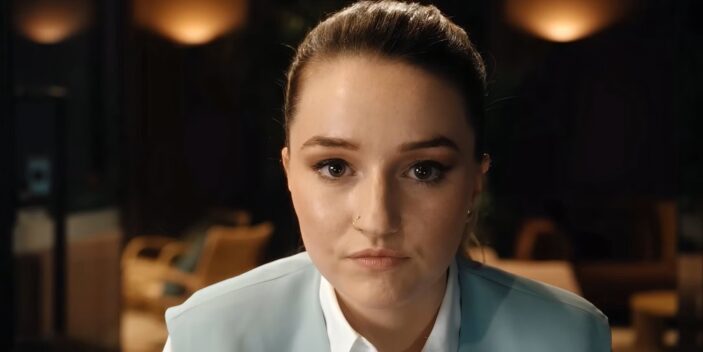
It’s no secret that Belle Gibson is one of the most infamous scammers in Australia’s history. In the rise of social media in the early 2010s, she used her platform as a space to promote healing and wellness, speaking of her multiple illnesses, inoperable stage 4 brain cancer, and how alternative medicine and healthy eating saved her life and cured her from her sickness.
This revelation was seen as an inspiration around the world, leading to the creation of a health app, and subsequent cookbook, called “The Whole Pantry”. She donated to charities and encouraged others who were sick, giving them hope of a natural and inexpensive cure. But, ultimately, her lies and deceit were brought to the surface when The Age exposed Gibson for being a fraud; with no signs of brain cancer or any illness ever existing, as well as over $300,000 worth of fraudulent donations to charity.
Now almost exactly ten years after these claims were first published, Netflix has released Apple Cider Vinegar, a six episode limited series based on her public downfall. Created by Samantha Strauss, and directed by Jeffrey Walker, it delves into the aspects of her story, the early days of Instagram influencers, and the dark side of the wellness industry.
After an opening montage that foreshadows the story’s ending – played to the ironic power pop of Britney Spears’s ‘Toxic’ – we are formally introduced to Gibson, played by Kaitlyn Dever, who immediately breaks the fourth wall, as she states that “this is a true story based on a lie,” and that “Belle Gibson has not been paid for the recreation of her story.” This sentiment is echoed at the beginning of every episode, each by a different character, making it incredibly clear that its subject will not profit from the series.
Told through a non-linear narrative, we witness the public successes and inevitable undoing of Gibson, as well as the other aspects of her life that haven’t been portrayed in the media before; the strained relationship with her mother (played by Essie Davis), her chronic loneliness, and the lack of ability to form any sort of social connections. And while it is absolutely no excuse for her narcissistic and despicable behaviour, Dever does an excellent job at peeling back the layers of such a complex and broken person, and finding elements of her that make her human, all while doing a near-perfect Australian accent.
And while Belle Gibson is the main antagonist in the limited series, it also explores a plethora of her relationships and how they drove her story forward – whether it be in a positive or negative manner.
Alycia Debnam-Carey’s portrayal of Milla Blake and her journey with her own cancer diagnosis is a captivating and devastating watch, where her own cancer diagnosis led to a desperate path of healing through natural remedies. Chanelle, portrayed by the incredible Aisha Dee, becomes the unsung hero of the story, who eventually works for Belle and unravels the lies she’s spun, becoming the first person to expose her, bringing the story to The Age. And finally there’s Lucy (the brilliant Tilda Cobham-Hervey), who we watch in pain as the life she’s envisioned for herself is ripped away by a breast cancer diagnosis, before she unexpectedly finds comfort in Belle and her influence.
While the non-linear narrative was initially quite confusing, stopping midway through the episodes, Strauss is able to recreate a compelling tale of Belle Gibson and how her manipulation and influence directly affected those around her. Through vivid and distinctive editing choices, it’s a tight, crisp, and very engaging watch.
Apple Cider Vinegar is a unique portrayal of a narcissistic psychopath, told through an incredibly eccentric lens. It’s emotional and a beautiful demonstration of the work the film industry in Australia can do, and even more reason to back home grown projects.
![]()
![]()
![]()
![]()
![]()
FOUR AND A HALF STARS (OUT OF FIVE)
All six episodes of Apple Cider Vinegar are now streaming on Netflix.
